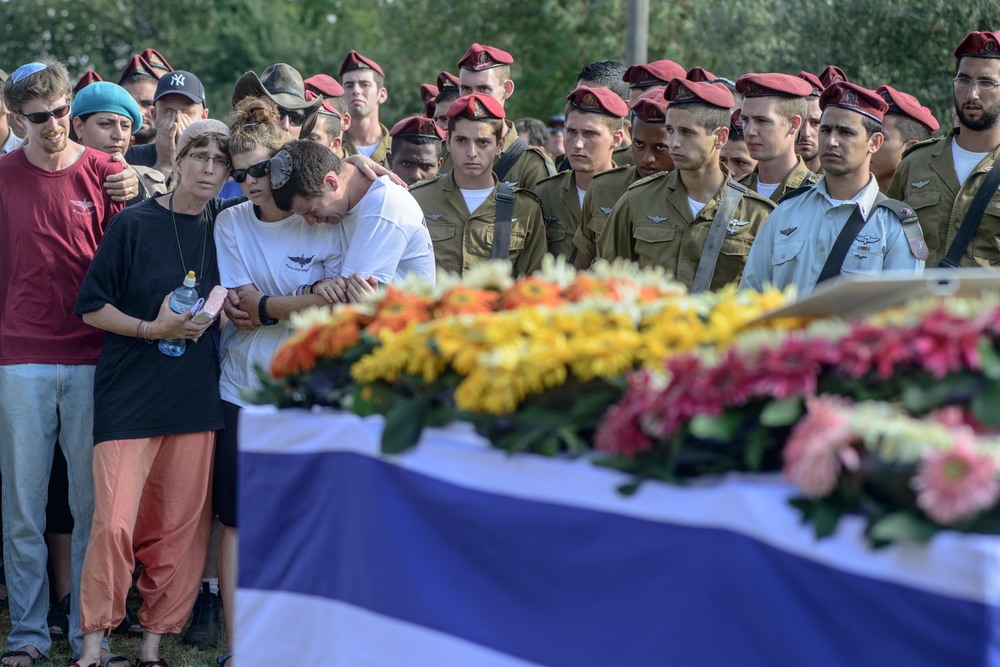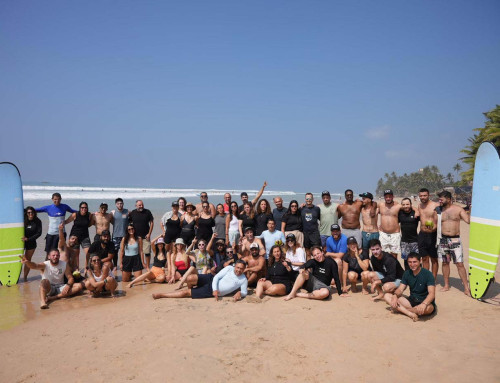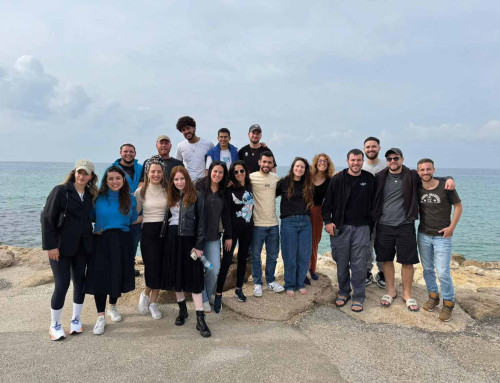Original source: Article published in JNS.org – by Maayan Jaffe

The attention of the Jewish community and the rest of the world is (not surprisingly) transfixed on the three recent Islamist terrorist attacks in Paris that took the lives of 17 people, including four Jewish shoppers at a kosher supermarket. But not too long ago, last summer’s 50-day war with Hamas in Gaza claimed the lives of 66 Israel Defense Forces (IDF) soldiers and six Israeli civilians. More than four months after the end of the conflict—but still early in the grieving process—the bereaved families are working to pick up the pieces.
Last month, OneFamily—an Israeli organization working to rehabilitate families that have seen members killed or injured by war or terrorism—held an event for 160 people from 50 families that suffered a loss from Operation Protective Edge. The event, which was also funded by the Iranian American Jewish Federation, offered a therapeutic environment for the families to heal together and to receive financial aid for the coming year.
OneFamily staff members had visited each home of the families that were bereaved by the Gaza war during the seven-day shiva mourning period, and the organization has offered counseling and other support to these families since last summer.
“It gives me tremendous joy to see all of you sitting together, eating together,” Rabbi David Baruch Lau, the Ashkenazi chief rabbi of Israel, said at the Dec. 31 event.
But in reality, the positive healing energy that the event sought to create is just the beginning of a lengthy process for these families. Rebecca Fuhrman, the communications manager for OneFamily, said the families are already experiencing the forgetfulness of society.
“Neighbors and friends are moving on and they are left with the loss,” Fuhrman told JNS.org. “It is the first time they are really experiencing that since the summer. It can be a lonely journey.”
“A lot of friends came in the beginning, but everyone has returned to their lives,” said Shosh Goldmacher. “Our friends have moved on.”
Goldmacher takes solace in talking about her son, who was in the IDF reserves when he entered the Gaza war last summer. She said Nadav wanted to fight in Gaza in order to give back to the Jewish people.
Chava Noach of Mitzpe Hoshaya lost her 22-year-old son, Oren Simcha, when the armored personnel carrier he and his squad were traveling in was caught in an anti-tank ambush in the Shejaiya neighborhood of Gaza.
“It makes you understand what is important and what is not important. … Losing a child, knowing he won’t come back every day, that just doesn’t disappear,” she told JNS.org, with her words coming in between her tears.
Noach draws on her faith to get through the days. She believes her son had a job to do in this world. “He fulfilled it and now he is gone,” she said.
Goldmacher said it is painful knowing that there is a strong likelihood of future wars in Gaza. But she doesn’t think her son’s sacrifice came in vain.
“We are not done
“Your children watched over Gaza… and we will watch over you,” Israeli Economy Minister Naftali Bennet said at the Dec. 31 OneFamily event. “I want to tell you, ‘Thank you.’ You sacrificed the most and we are indebted to you forever.”
OneFamily distributed $90,000 to the bereaved families attending the event.
“This is a wound that cannot be healed—the loss of a child, a spouse, a parent, a sibling. It is not a healing process, it is a coping process,” Fuhrman explained.
Dr. Zieva Konvisser, author of the 2014 book “Living Beyond Terrorism: Israeli Stories of Hope and Healing,” expressed the same sentiment. She said “coping” is the correct word to describe the aftermath of losing a loved one to war or terror. For her book as well as her 2006 doctoral dissertation, Konvisser interviewed dozens of people who managed to transform personal tragedy into triumph.
Konvisser told the story of Dina Kit, who lost one son to cancer and then a second son to a Palestinian suicide bombing in 2001. Kit and her husband, Omer, went through counseling through OneFamily and then began volunteering with the group. Dina Kit ultimately became the full-time office manager at OneFamily’s main office in Jerusalem. Konvisser quoted her as saying, “They see that I lost two sons and I am productive and strong, and they get encouragement from this. They see that when the body begins to strengthen, the spirit begins to work with and take care of the body.”
Omer Kit is a member of OneFamily’s male choir along with 11 other fathers who lost children to terror or war. He sings to remember his son, but also to make others like him happy. Konvisser told JNS.org that the Kit family’s story proves how “alongside the pain and horror and grief, there is a possibility to move forward.”
Chava Noach is just beginning this renewal process. She is working with Oren’s friends to commemorate her late son, who loved camping and hiking, through the construction of an observation point not far from the family’s home in Mitzpe Hoshaya. “Oren’s observation point” will be located in the Tzipori Mountain Range, feature spectacular views of the Galilee valleys, and be a part of the Israel National Trail.
Still, Noach contends that for her, the best kind of support she can receive is “a big hug.”
Download this story in Microsoft Word format here.

![[Podcast] Heartthrob Idan Amedi Concert Coverage](https://onefamilyfundus.org/wp-content/uploads/2025/03/heartthrob-Idan-500x383.jpg)



